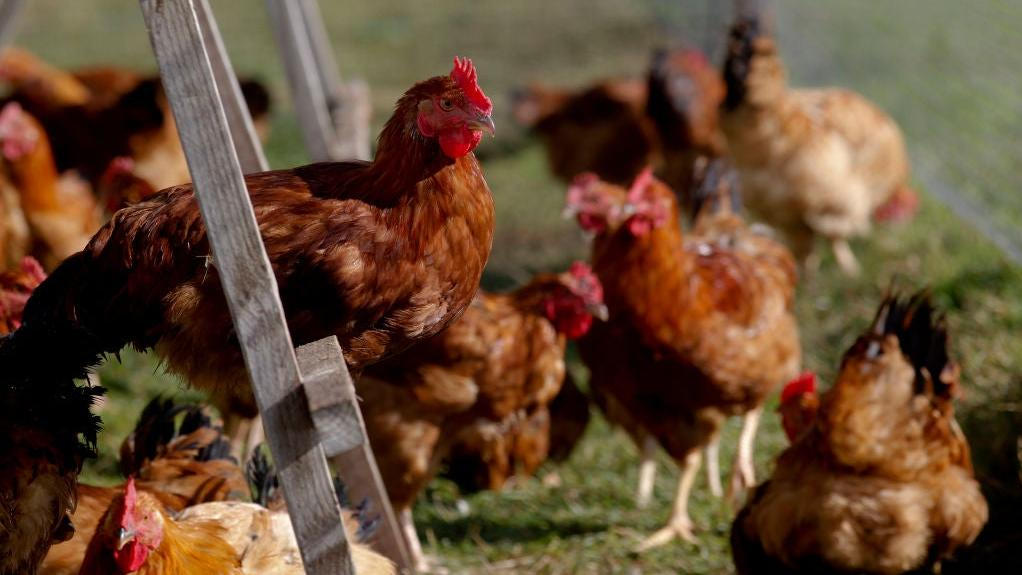Is It Worth Shelling Out The Extra Cash For Pasture-Raised Eggs?
Nutritionists discuss whether or not those beautiful yolks are worth the splurge.
I'll be the first to admit it: Grocery store egg terminology is confusing. Cage-free, free-range, organic, pasture-raised, egg grades, chicken diets—what the hell? I'll stare at all the different packages and prices, and usually when it comes down to it I'll just get whichever eggs are on sale. But then there's that part of me that wonders, should I have gotten the fancy ones? Finally, HuffPost put that question to nutritionists, and they were able to shed some light on the matter.
Let's start with the term "cage-free." As registered dietitian and wellness advisor Kylene Bogden told HuffPost, "The term 'cage-free' isn't quite as great as it sounds. While this label is regulated by the USDA, it just means the hens aren't kept in cages. They are permitted to 'freely roam a building, room or enclosed area.' This is not ideal, because they do not have access to the outdoors."
So if you read "cage-free" on the carton, don't picture blue skies and birds pecking in the grass just yet. Pasture-raised eggs, though not USDA-regulated, are still worth seeking out over cage-free or free-range eggs, says Bogden. "Free-range" means that chickens do have access to the outdoors when permitted, according to this handy guide from Eater.
Many people note that the difference between cheap and expensive eggs lies in the egg yolk: better quality eggs, the thinking goes, have a much more orange yolk, rather than a pale yellow one. But does a deeper orange hue actually indicate a better egg, or a healthier chicken? Jessica Humphrey, a spokesperson from Vital Farms, a pasture-raised egg brand, says it's all about the chicken's diet.
"Everything a hen eats, including pasture grazing and supplemental feed, impacts yolk color," Humphrey told HuffPost. "Because the girls are pasture-raised, it's natural for yolk color to vary. This variation is affected by how often hens eat and what they eat. In the summer, the girls tend to eat less due to the warmer temperatures. In the winter, they tend to eat more to stay warm."
Chicken feed can actually cause egg yolks to look dramatically different. If you feed hens red pepper, for example, the yolks can actually turn red. Fascinating, right? Check out these photos, which show the striking results of altering a chicken's daily diet.
Nutritional research on pasture-raised eggs is surprisingly limited, as USDA regulation is required to set something like that in motion. But other dietitians, like Tracey Lockwood Beckerman, suggest that the pasture-raised eggs are likely to be denser in nutrition than the conventional ones.
"It's possible that pasture-raised eggs have more nutrients like vitamins A, D, E, antioxidants and omega-3 fatty acids when compared to conventional or standard eggs," she told HuffPost. "That's because the hens have more access to nutrients from grass, alfalfa and clover, as well as access to the sun, which can boost vitamin D levels, too."
All this might make you wonder if conventional eggs are still considered good for you—and the answer is a resounding yes. Beckerman calls eggs a "nutritional home run" and a great source of key vitamins that we might not otherwise consume via the foods that form the rest of our daily diet. So if you don't decide to shell out for pasture-raised eggs for whatever reason, don't sweat it. You can enjoy whichever ones you like. And right now, all I want to do is take those red pepper eggs for a spin.
